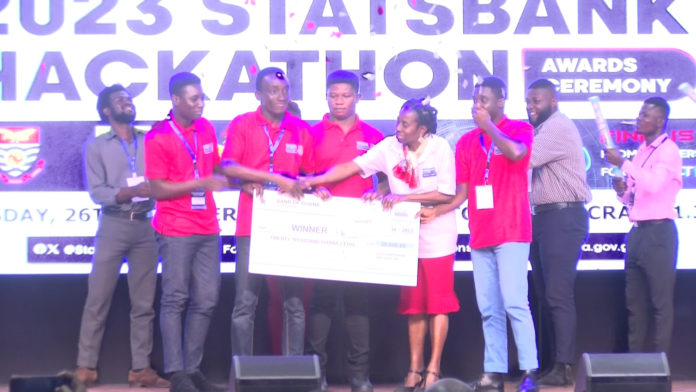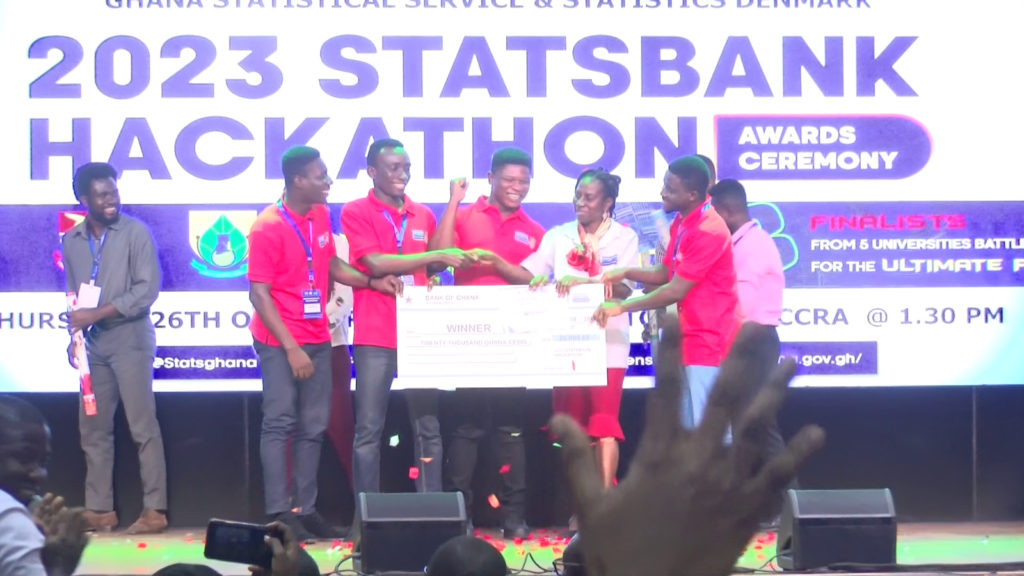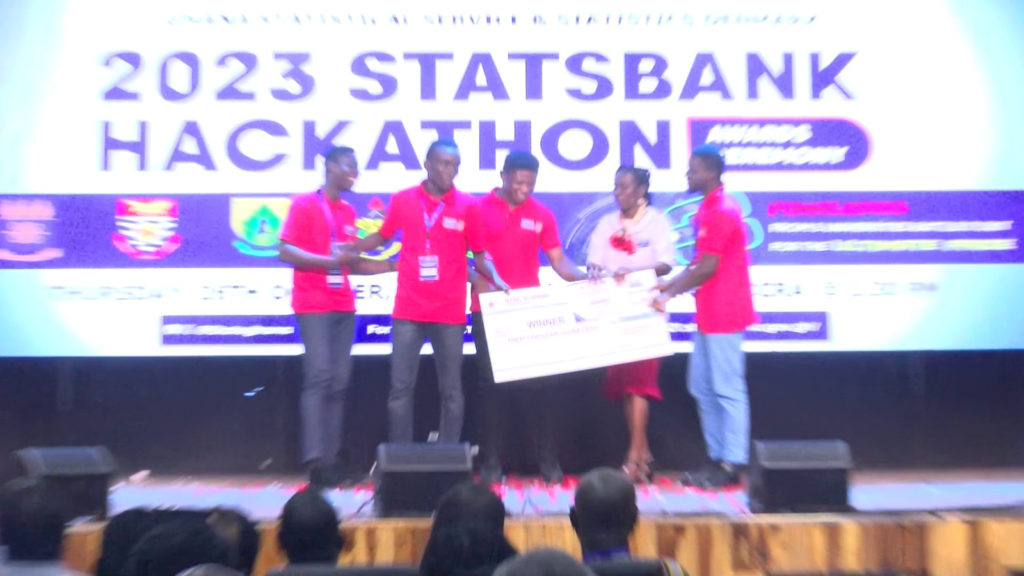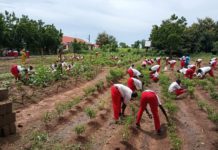
Team Badwenba from the University of Cape Coast (UCC) has been crowned winners of the 2023 National StatsBank Hackathon.
It was a three-day event which brought together five tertiary institutions in Accra to harness data for societal impact.
Their challenge was to unlock the potential of GSS StatsBank and utilise census data to drive policy-relevant research.
Each institution had three teams tasked with developing a product that addresses a social issue while emphasizing product aesthetics and its ability to seamlessly integrate with existing Ghana Statistical Service data.
Participants were expected to create a product that addresses specific social problems aligned with the United Nations Sustainable Development Goals.

Team Badwenba won the grand prize for the development of a dashboard to help policymakers identify districts lacking access to essential services.
Team Data Geniuses from the University of Ghana came in second, while Team Robust Research from UCC came in third.
Three teams each from the University of Ghana, the University of Cape Coast, the University of Health and Allied Sciences, the University for Development Studies, and the Kwame Nkrumah University of Science and Technology competed in the inaugural version of the hackathon.
The winners were announced at an awards ceremony for the Hackathon on Thursday, October 26, 2023.
The winner received GHS20,000, the first runner-up GHS15,000, and the second runner-up GHS10,000.

The programme was chaired by the Director General of the National Communications Authority (NCA), Joe Anokye.
A panel of judges comprising of experts from the public sector, private sector, and development partners were responsible for selecting the winners.
The hackathon was organised by the Ghana Statistical Service (GSS) in partnership with Statistics Denmark.
It was to raise awareness about the GSS StatsBank and foster collaboration between GSS, academia, and other institutions.
The StatsBank is an online database for accessing disaggregated statistics from censuses, surveys, and administratively compiled sources.
Government statistician, Professor Kobina Anim, in his remarks, noted that the importance of the hackathon is to promote the commitment of GSS to supporting data interventions with a multiplier impact (DIMI) and policy interventions with a multiplier impact (PIMI).
“Ghana’s development has been characterised by cyclical fluctuations, and the only way to end these fluctuations is through statistics-focused initiatives such as the StatsBank,” he said.
He further added that every $1 invested in the statistical data system can yield a minimum of $32 and for developing countries as high as $70 highlighting the importance of building a robust and modernised statistical system.
The programme also featured a solidarity message by Mr. Tom Nørring, the Ambassador of the Embassy of Denmark, fraternal message on statistical data, research, and policy from the Ag. Head of the Civil Service Dr. Evans Aggrey-Darko, and a statement from Benson Baba Tongo, the Chairperson of the Parliamentary Poverty Reduction Strategy Committee.





